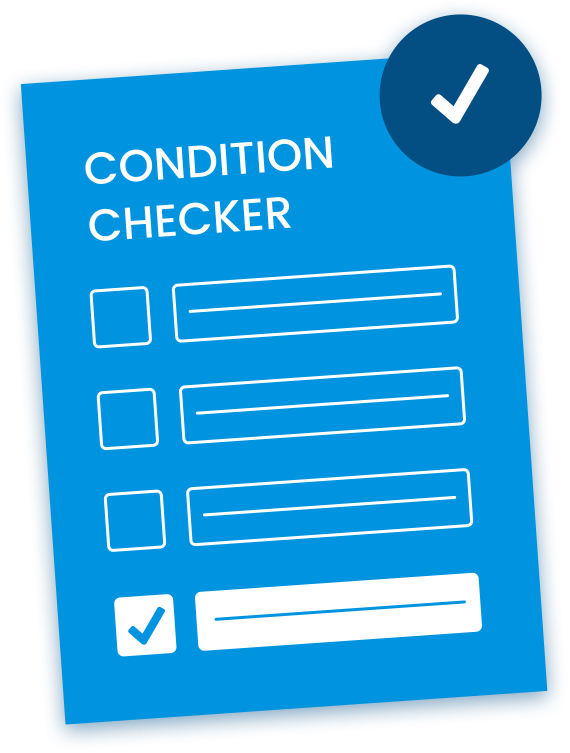Spine Deformity Symptoms & Treatment Options
Find out which possible conditions you may be suffering from by trying our 2-min Guided Pain Assessment Form!





Spine deformity is a condition that affects the alignment of the bones in the spinal column. This can result in a range of symptoms, from mild discomfort to debilitating pain and disability. It is important to note that some types of spine deformity may be present from birth, while others may develop over time due to factors such as injury, poor posture, or age-related wear and tear on the spine.
Therefore, it is essential to maintain good spinal health throughout your life by practicing good posture, engaging in regular exercise, and seeking prompt medical attention for any symptoms of spine deformity. If you are experiencing spine deformity, the compassionate and patient advocates at NJ Spine & Orthopedic are here to help.
Spine deformity can be a complex condition that may present with a range of symptoms depending on the type and severity of the deformity. In some cases, patients with mild spinal deformities may not experience any noticeable symptoms, while in others, symptoms may be more pronounced and can significantly impact their quality of life.
There are a number of different types of spine deformities, each with its own set of causes and treatment options:
While spine deformities can be caused by a range of factors, including genetics, poor posture, and injury, several treatment options are available to help manage the symptoms of these conditions.

Find your condition with our 2-minute Condition Checker.
Some common symptoms of spine deformity include:
If you are experiencing any of these symptoms, you need to speak with your healthcare provider to determine the underlying cause and develop an appropriate treatment plan.
If you think you have a spine deformity and want to get a diagnosis, seeking medical attention can be extremely helpful. Getting a diagnosis can help you gain access to the treatments you need to make any corrections and improve your quality of life. Luckily, getting a diagnosis can be simple. We recommend you work with a medical professional and ask for an assessment, making sure you include information about any symptoms you are experiencing.
If you like, you can work directly with a surgeon with experience treating and assessing spine issues. This is a great option if you want to avoid the hurdles of speaking to multiple doctors about your concerns and navigating referrals. For more information about your options for diagnosis and assessment, we encourage you to get in touch with our team at your earliest convenience.

Discover which treatment options are right for you with our Treatment Finder.
Your healthcare provider may perform a physical exam and imaging tests, such as X-rays or MRIs, to diagnose the condition and determine the best course of treatment. The appropriate treatment will depend on several factors, including the type and severity of the condition, the patient’s overall health, and their personal preferences and goals for treatment. The following are some of the most common treatment options for spine deformities:
Surgery is sometimes necessary to correct more severe spine deformities. Several different surgical procedures can be used to correct spine deformities, depending on the nature and severity of the condition. One common surgical procedure is spinal fusion, which involves fusing two or more vertebrae to help stabilize the spine and prevent further curvature.
Other surgical procedures that may be used to correct spine deformities include osteotomy, which involves removing a section of the spine to help straighten it, and artificial disc replacement, which involves removing a damaged or degenerated disc and replacing it with an artificial one.
It is crucial to speak with your healthcare provider to discuss your treatment options and determine the best course of action for your individual needs. With the proper treatment, many patients are able to achieve significant improvements in their symptoms and overall quality of life. Our team at NJ Spine & Orthopedic can also offer same-day office visits to get you the answers you deserve.
Patients with spine deformities should also pay close attention to their nutrition, as a healthy diet can help to support overall spinal health and reduce the risk of developing osteoporosis, which can contribute to spinal deformities. If you are experiencing chronic pain from spine deformity, try our Candidacy Verification tool and find out if you qualify for one of our treatment options. You can also contact us by filling out our form online or calling us at (866) 553-0612.

CONTACT
Phone: 855.586.2615
Current Clients: 855.706.1011
NJ Spine and Orthopedic is dedicated to delivering minimally invasive laser spine surgeries to eliminate the pain, discomfort, and dysfunction of numerous conditions of the neck and back.
OVERVIEW
LOCATIONS
Copyright © 2025 NJ Spine & Orthopedic